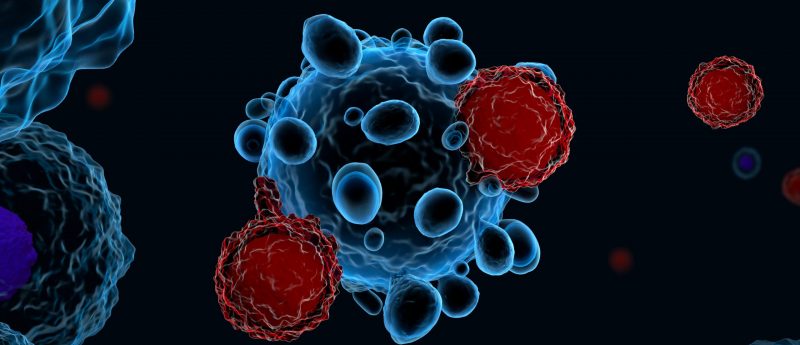Could light sensitive CAR-T cells treat skin cancers?

Researchers have now developed light activated CAR-T cells, allowing for an increased selectivity and efficacy.
A team of researchers from the University of California, San Diego (CA, USA) have developed CAR-T cells that can be activated by pulses of blue LED light. This novel method may light the path for the development of selective CAR-T cells that can be used for solid tumors.
CAR-T has been successful in some types of blood cancer and lymphoma; however, when used against solid tumors, selectivity issues have arisen as many healthy cells also possess the antigens that the CAR-T cells are programmed to attack. For this reason, the design of selective CAR-T cells for solid tumors is greatly needed.
To address this, a team of bioengineers from the University of San Diego have recently developed an ‘on-switch’ for these CAR-T cells. Their research, published in Science Advances, sheds a light on how we can selectively induce the activity of this therapy.
“It is very difficult to identify an ideal antigen for solid tumors with high specificity so that CAR-T cells only target these diseased tumor sites without attacking normal organs and tissues,” commented Peter Yingxiao Wang from the UC San Diego Jacobs School of Engineering (CA, USA), the senior author of the study. “Thus, there is a great need to engineer CAR-T cells that can be controlled with high precision in space and time.”
In the study, two new proteins were incorporated into the CAR-T cells. These proteins were engineered to bind together when stimulated with pulses of blue LED light, which in-turn initiates the expression of the antigen-targeting receptor.
With this ability, clinicians are now able to select the location that they would like this life saving therapy to be activated — increasing the precision of this treatment with a simple burst of light.
When tested in mice, the modified CAR-T cells activated by light were able to reduce tumor size by up to nine-fold. What’s more, when these cells were not exposed to light, no tumor inhibition was seen — demonstrating the limited off-target activity of these drugs.
However, as light cannot penetrate deeply in the body, this therapy may be restricted to tumors located near the surface of the skin — such as melanoma.
Sources: Huang Z, Wu Y, Allen M et al. Engineering light-controllable CAR-T cells for cancer immunotherapy. Sci. Adv. 6, 8, eaay9209 (2020); https://ucsdnews.ucsd.edu/pressrelease/controlling-car-t-cells-with-light-selectively-destroys-skin-tumors-in-mice
Have any additional questions about this story? Ask us in the comments, below.
Find out more in these top picks from the Editor:
- CAR-T mesh shrinks ovarian tumors in mice
- ‘Smart CAR-T’ immunotherapy safer and more effective in mice
- Next generation CAR-T cell therapy could fight solid cancers